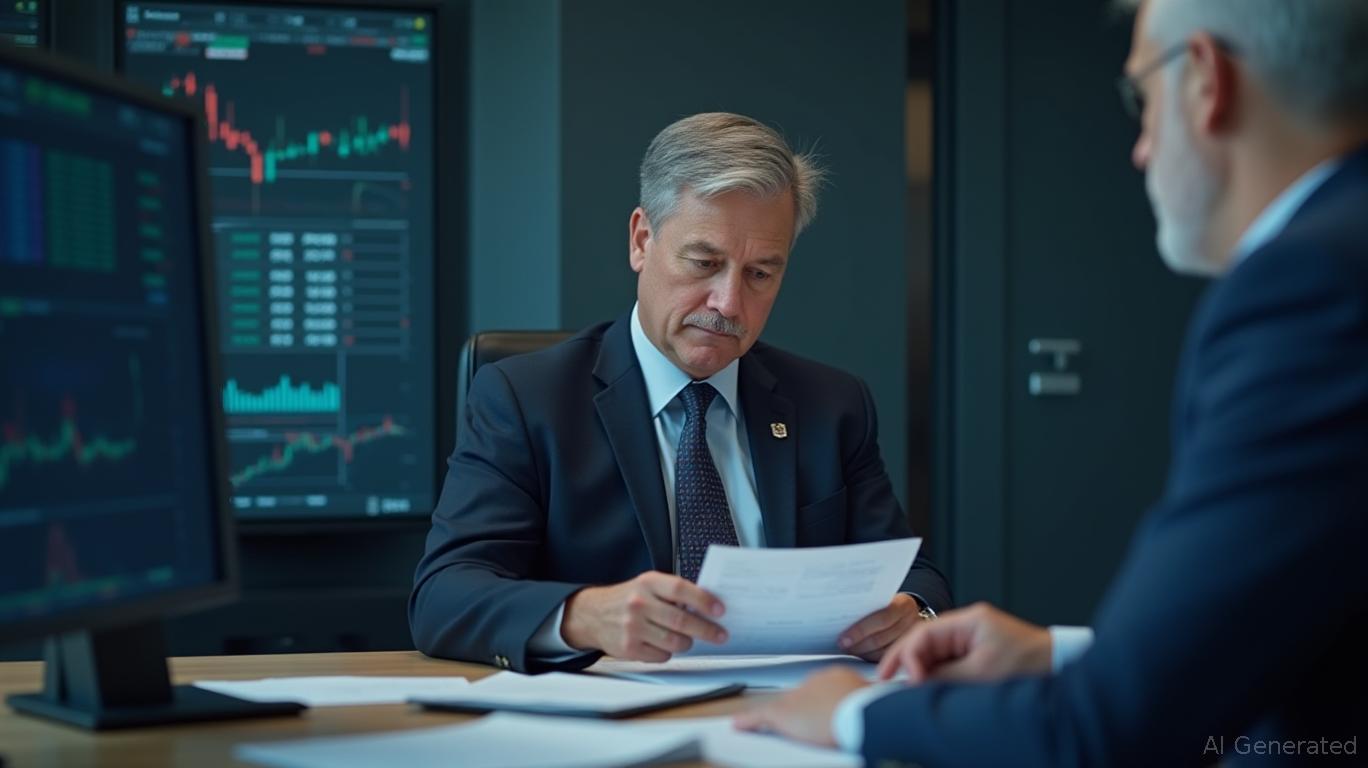Trump’s CFTC Pick Aims to Close SEC Gap in Cryptocurrency Regulation
- Trump nominated SEC crypto task force chief Michael Selig to lead the CFTC, signaling a strategic shift toward unified crypto regulation. - Selig's expertise in bridging SEC-CFTC oversight gaps positions him to accelerate regulatory harmonization for digital assets and derivatives. - The appointment follows failed attempts to appoint industry-linked candidates and aligns with bipartisan efforts to clarify the CFTC's authority over crypto markets. - Selig's confirmation would advance Trump's agenda to est
Donald Trump has selected Michael Selig, who currently serves as chief counsel for the Securities and Exchange Commission’s (SEC) crypto task force, as his nominee to chair the Commodity Futures Trading Commission (CFTC). This move marks a significant change in the administration’s stance on cryptocurrency regulation. Bloomberg first reported the nomination, which was also confirmed by a
The urgency of the CFTC’s role in digital asset regulation has grown as federal agencies strive to create unified regulatory structures. Both the SEC and CFTC are working toward coordinated regulatory milestones by the end of 2025, which include clarifying rules for spot crypto trading and incorporating tokenized collateral into regulated markets, according to a

Selig’s selection coincides with increasing bipartisan initiatives to establish clear regulatory boundaries for digital assets. Congress is currently considering legislation to reinforce the CFTC’s jurisdiction over crypto futures and swaps, while the SEC remains focused on investor protection and securities law compliance, as noted by CryptoBriefing. The agencies’ collaboration, including a joint roundtable on regulatory alignment, marks a rare moment of unity in a sector often divided by jurisdictional disagreements. Experts say Selig’s background in harmonizing SEC and CFTC policies—shaped by his time as an aide to SEC Chair Paul Atkins and as a partner at Willkie Farr & Gallagher—makes him especially qualified to address these challenges, according to The Block.
This development also highlights Trump’s strategic focus on digital asset policy. Earlier this year, the president reaffirmed his plan to impose 155% tariffs on China, a decision that has impacted markets, according to
The CFTC’s growing influence in crypto regulation is expected to intensify in 2026, as major banks and exchanges ramp up tokenization pilots and blockchain adoption, according to CryptoBriefing. Selig’s guidance will be crucial in maintaining a balance between strict regulation and the encouragement of innovation—a challenge that has tested previous leaders. With the CFTC now playing a central role, the confirmation process will be closely monitored by both industry stakeholders and government officials.
Disclaimer: The content of this article solely reflects the author's opinion and does not represent the platform in any capacity. This article is not intended to serve as a reference for making investment decisions.
You may also like
Trump says cryptocurrency could solve $35 trillion U.S. debt problem
USDC circulation increased by approximately 600 million in the past 7 days
A certain address made $675,000 in profit from trading PING in two days
CZ: Kyrgyzstan has established a national cryptocurrency reserve, which includes BNB